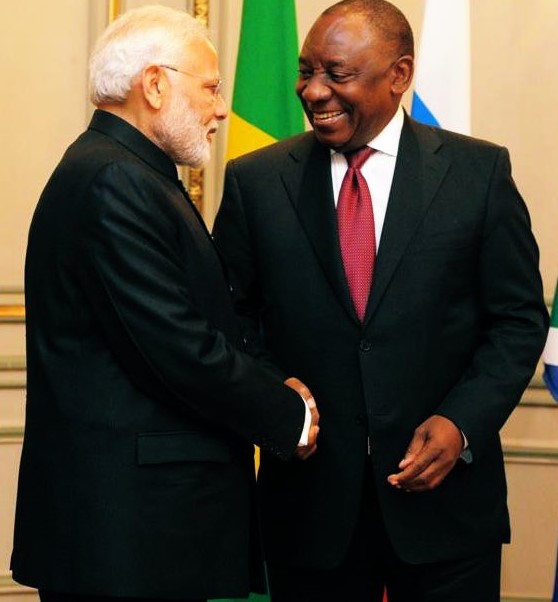India and Africa must forge a vaccine alliance to consolidate gains following US President Joe Biden’s decision to suspend patents that come in the way of mass producing Covid-19 vaccines.
The Biden administration’s brave move, which implies taking on the powerful and highly organised Big Pharma, follows intense lobbying by India and South Africa at the World Trade Organisation (WTO), along with 60 other countries.
The two emerging economies had called for the temporary lifting of intellectual property rights held by big pharmaceutical companies so that inexpensive Covid-19 vaccines could be mass produced locally.
Also read: After Covid surge India can play a key role in ending Vaccine Apartheid practiced by Big Pharma
India, especially, has been hit hard by a massive second wave of Covid-19, forcing it to do away with some of its international obligations to export vaccines, because of an unexpected surge in demand at home.
Unsurprisingly, Indian Prime Minister, Narendra Modi, had last month discussed lifting the patent protections of coronavirus vaccines during a conversation with Biden, in order to augment supplies.
“Prime Minister Narendra Modi also informed President Biden about India's initiative at the WTO for a relaxation in the norms of the Agreement on TRIPS to ensure quick and affordable access to vaccines and medicines for developing countries,” said an official statement released by the Ministry of External Affairs after the dialogue.
After Biden’s move, Africa is now celebrating the patents breakthrough, though there are hurdles ahead because of the Big Pharma’s influence in the European Union. Unless all members are on board, including the Europeans, it would not be possible to act upon Biden’s waiver, as the WTO decisions are taken only by consensus
Also read: India, South Africa welcome President Biden’s backing on patent waiver for Covid vaccines
“This is leadership in action! History will remember this decision as a great act of humanity!
Tweeted John Nkengasong Director of the Africa Centres for Disease Control & Prevention.
African Union officials are singling out three countries — South Africa, Senegal and Rwanda — as vaccine hubs for Africa. That includes producing mRNA-type jabs that are being viewed as products based on innovative technology to fight Covid-19.
Both Rwanda and South Africa have already shown intent to bond with India to produce life-saving vaccines.
Speaking virtually at the 6th edition of the Raisina Dialogue, India's flagship conference on geopolitics held last month, President Paul Kagame of Rwanda praised New Delhi for the solidarity it had shown with Africa on vaccinations.
"India, despite its own challenges, has produced most of the vaccine doses sent to Africa under Covax and related programmes. Without India's production capacity and spirit of solidarity it is possible that Africa would not yet have received much vaccine at all," he said.
He signalled that more ambitious private sector investments between India and Africa were required in the pharma sector.
South Africa’s President Cyril Ramaphosa is also a strong advocate of a vaccine alliance among developing countries, including India. “Developing countries must be made to internalise that hoarding available vaccines and not waiving vaccine patents will lead to immense suffering and tremendous loss of human life. None of us are safe until all of us are safe,” he tweeted on May 1.
Ramaphosa said during May day celebrations that the rise in the number of coronavirus infections and Covid-19- related deaths in India as well as the looming crisis in Brazil make a strong and an urgent case for developing countries to produce vaccines themselves.
“Many developing countries have the capacity and will be able to manufacture their own vaccines much more quickly, efficiently and much cheaper. South Africa in particular must be alive to the real risk of experiencing a third wave of Covid infections during winter,” he observed.
The Financial Times is reporting that South Africa has some of Africa’s most advanced vaccine knowhow, including Aspen, a Durban-based company. The Pasteur Institute in Dakar, Senegal, also has vaccine-producing experience, making small quantities of yellow fever jabs each year.
That gives plenty of option for collaboration between India’s vast vaccine infrastructure and Africa’s significant capability to scale up the production of jabs on an international scale.




















